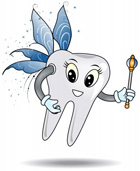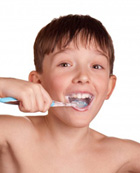 As part of taking care of your teeth, some people turn to mouth washes. But the picture is not that clear as to how beneficial they actually are. If you want some answers about mouth washes and whether they are the best choice for you then you should read on.
As part of taking care of your teeth, some people turn to mouth washes. But the picture is not that clear as to how beneficial they actually are. If you want some answers about mouth washes and whether they are the best choice for you then you should read on.
Mouth washes are clinically formulated substances designed to be swilled around your mouth after brushing and then gargled with. They usually have bacteria killing properties and are available in a variety of flavours so that your breath will take on certain aromas after use.
The problem with the fact that they kill bacteria is that not all bacteria in your mouth is actually bad. Some of it is highly beneficial to the way that your mouth works. Mouth washes are unable to discriminate and they just kill all of it, leaving you lacking the good bacteria that has to be formed all over again.
Further, particularly mouth washes containing alcohol can actually create ideal conditions for plaque to flourish. These mouth washes make the mouth rather dry and then plaque can stick to teeth far easier than they would normally be able to. Increasingly alcohol mouth washes are becoming rather rare but mouth washes generally have this tendency.
Sometimes your dentist might advise that you use a certain type of formulated mouth wash as part of the treatment of gingivitis but this should be done sparingly for the above reasons. It would be an irony indeed if by using mouth wash you actually created conditions ideal for plaque to thrive and cause further gum disease!
Whether you use mouth washes is your choice and they can be effective at freshening breath in the short term but you should talk to your Leeds dentist for more expert information.





 If you have a cracked, chipped or even discoloured tooth you might feel a little embarrassed about it, especially if it is right at the front of your mouth, dominating your smile. You shouldn’t just put up with it, instead talk to your dentist about how it can be rectified. One of the options available to you is to have a porcelain veneer fitted.
If you have a cracked, chipped or even discoloured tooth you might feel a little embarrassed about it, especially if it is right at the front of your mouth, dominating your smile. You shouldn’t just put up with it, instead talk to your dentist about how it can be rectified. One of the options available to you is to have a porcelain veneer fitted. Of course we all know how important brushing is in looking after our teeth. But how many of us only do that? The fact is that, for too many of us, oral hygiene begins and ends when we brush our teeth in the morning and again at night. There is more to taking care of your teeth than this, however.
Of course we all know how important brushing is in looking after our teeth. But how many of us only do that? The fact is that, for too many of us, oral hygiene begins and ends when we brush our teeth in the morning and again at night. There is more to taking care of your teeth than this, however. The signs of oral cancer are rusty coloured and hard patches in the mouth. You might find that you are experiencing odd, metallic tastes in the mouth for no apparent reason and find that you experience sudden weight loss. If you experience any of these symptoms it is vital that you consult your dentist as soon as you can; don’t wait for your next six month check up, make an appointment.
The signs of oral cancer are rusty coloured and hard patches in the mouth. You might find that you are experiencing odd, metallic tastes in the mouth for no apparent reason and find that you experience sudden weight loss. If you experience any of these symptoms it is vital that you consult your dentist as soon as you can; don’t wait for your next six month check up, make an appointment. There are many decisions to be made when considering how best to take care of your mouth such as what type of brush to use and which, of the many, tooth pastes. One of the decisions that people have wrestled with over the years concerns fluoride and it is not without controversy. Read on for more information.
There are many decisions to be made when considering how best to take care of your mouth such as what type of brush to use and which, of the many, tooth pastes. One of the decisions that people have wrestled with over the years concerns fluoride and it is not without controversy. Read on for more information. Taking excellent care of your teeth begins with what you do at home, of course. Brushing and flossing at least twice a day and maintaining a healthy diet and lifestyle should mean that your teeth and gums are generally healthy and optimally functional. But there is always the chance that a condition might be developing in your mouth. If you are in regular contact with your dentist then it can be diagnosed before it gets worse.
Taking excellent care of your teeth begins with what you do at home, of course. Brushing and flossing at least twice a day and maintaining a healthy diet and lifestyle should mean that your teeth and gums are generally healthy and optimally functional. But there is always the chance that a condition might be developing in your mouth. If you are in regular contact with your dentist then it can be diagnosed before it gets worse. If you have cavities in your teeth you needn’t worry anymore about having to have them filled with unsightly metal cavities. New cosmetic bonding techniques which are becoming increasingly widespread and available are now being used by dentists for this purpose and are far more discreet and durable than their metal counterparts.
If you have cavities in your teeth you needn’t worry anymore about having to have them filled with unsightly metal cavities. New cosmetic bonding techniques which are becoming increasingly widespread and available are now being used by dentists for this purpose and are far more discreet and durable than their metal counterparts. Thanks to advance in technology, the way that dentistry works is changing and patients are benefiting enormously. The time that one needs to spend in the surgery is being slashed and the costs are going down too. To find out more, read on and be amazed at how new technology is changing dentistry.
Thanks to advance in technology, the way that dentistry works is changing and patients are benefiting enormously. The time that one needs to spend in the surgery is being slashed and the costs are going down too. To find out more, read on and be amazed at how new technology is changing dentistry. If you find that you are suffering from interrupted sleep there is a possibility that you have some form of apnea. This condition can be related to the mouth, which dentists have access to in their check ups. Read on if you are concerned about the condition.
If you find that you are suffering from interrupted sleep there is a possibility that you have some form of apnea. This condition can be related to the mouth, which dentists have access to in their check ups. Read on if you are concerned about the condition. Bad breath is something that most people will probably do their best to avoid. It can make it very socially difficult knowing that there are unpleasant smells emitting from your mouth because of bacteria. These bacteria hang around from the food you eat and are usually removed by brushing alone but some people find that that is not enough.
Bad breath is something that most people will probably do their best to avoid. It can make it very socially difficult knowing that there are unpleasant smells emitting from your mouth because of bacteria. These bacteria hang around from the food you eat and are usually removed by brushing alone but some people find that that is not enough.

